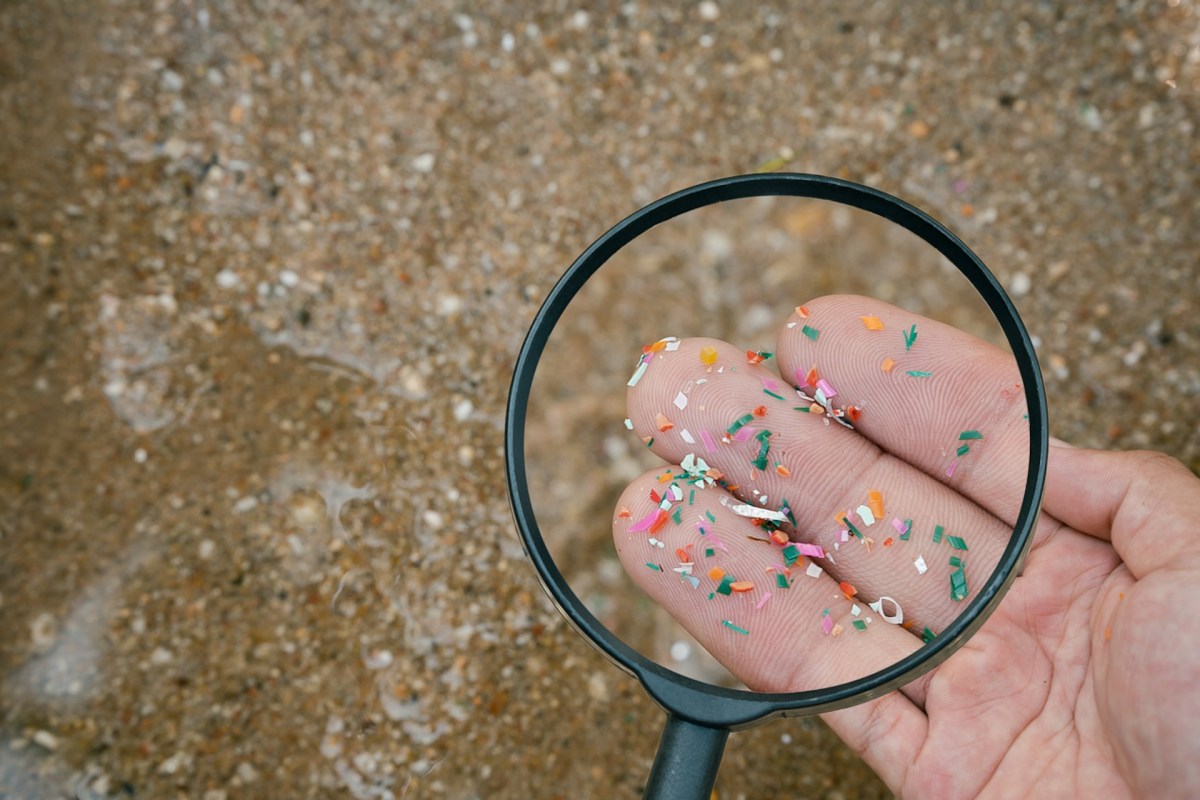The marine biologist who first coined the term "microplastics" almost two decades ago says we need to change our ways if we want to solve the plastic pollution problem.
What happened?
In 1993, as detailed by the Guardian, marine biologist Richard Thompson participated in a beach cleanup on the Isle of Man. There, he noticed thousands of multicolored fragments mixed in with sand. Over the next decade, Thompson would go on to gather dozens of sand samples to confirm what he had suspected — they were tiny bits of plastic.
In 2004, Thompson co-authored a short study in which he first described these particles as microplastics and hypothesized that they were the result of larger plastics entering the ocean and fragmenting into smaller pieces. The paper unexpectedly garnered international attention, helping to spur the field of microplastics research.
Today, Thompson is still active in his fight to curb plastic pollution. He said that while cleanup efforts and biodegradable plastics are attractive options, they will not save us.
"Let's turn to the solutions, which lie upstream," he said at the June 2023 Paris climate summit, per the Guardian. "We can't carry on [producing] at the rate we are. It's overwhelming any ability to cope with it."
Why is reducing plastic pollution important?
Only up to 10% of plastics are recycled, per the Guardian, which has led to what many have termed the "plastics plague."
Chemicals from plastics have been linked to endocrine disruption, weight gain, insulin resistance, decreased reproductive health, and cancer, per the United Nations.
Then there are microplastics. Humans inhale and ingest them through things like seafood, water, beer, and even salt. In fact, one study found that the average adult takes in about 2,000 microplastics annually through salt alone. The health effects of microplastics are still up for debate, however.
Plastic also pollutes the environment and threatens wildlife, killing millions of animals each year, per National Geographic, including birds and fish. The creatures sometimes ingest it or become entangled in things like plastic bags and packaging rings used for soda and beer cans.
What can I do to help with plastic pollution?
Many of the solutions to the plastic plague lie at the production level. Therefore, it's important to curb the creation of single-use plastics, according to Thompson.
However, some plastics remain vital to our lives and are likely to stay with us, he added. This calls for designing plastics that are more recyclable. Thompson said PET (polyethylene terephthalate) bottles are a good example of how simpler construction can result in plastics that can be recycled up to 10 times.
He also suggested a rethink of polymer-rich fabrics, which shed plastic microfibers, reported the Guardian. Redesigning their materials for longer wear can reduce shedding by up to 80%.
Meanwhile, some companies are trying to reduce plastic waste already. Pepsi is testing reusable packaging in place of plastic bottles, while McDonald's banned all plastic cutlery in its U.K. and Ireland restaurants. And major beer brands like Coors Light are getting rid of the plastic packaging rings that kill marine animals.
You can help reduce plastic pollution by investing in reusable, more reliable items — and plastic-free ones — that can save you money in the long run. These include metal razors, durable water bottles, shampoo bars, dissolvable dishwasher/laundry pods, and non-plastic sandwich bags.
Join our free newsletter for weekly updates on the coolest innovations improving our lives and saving our planet.









